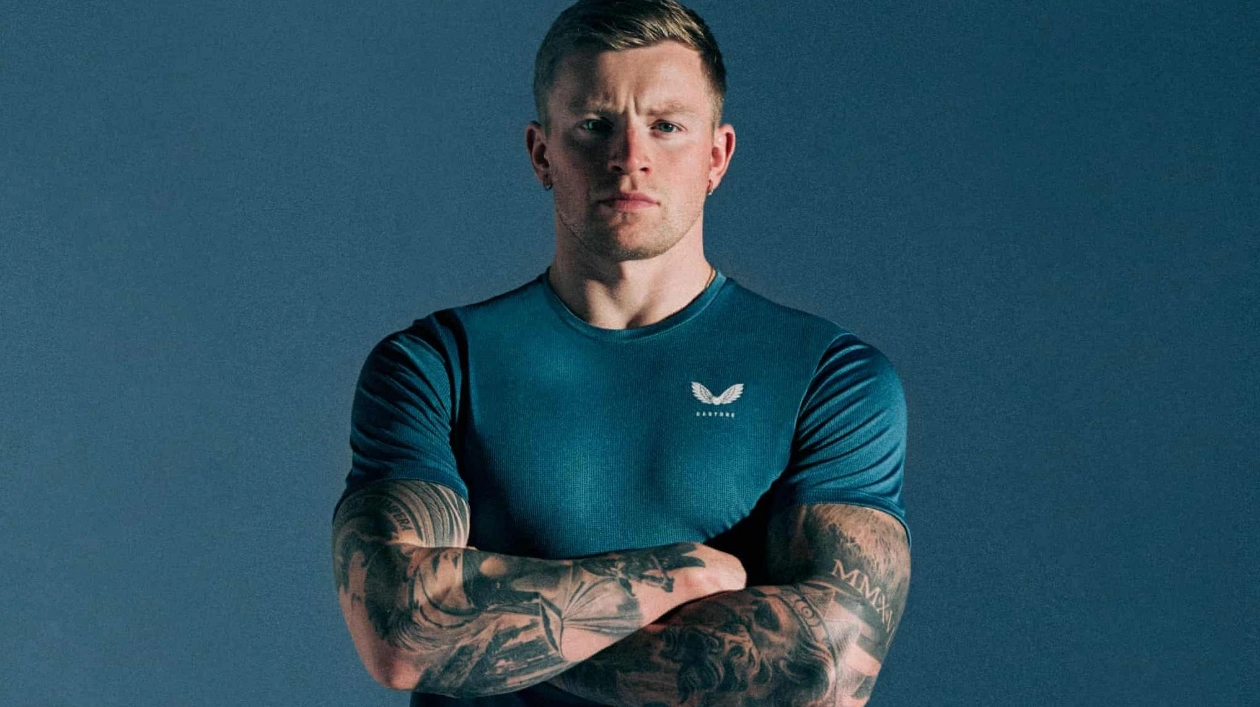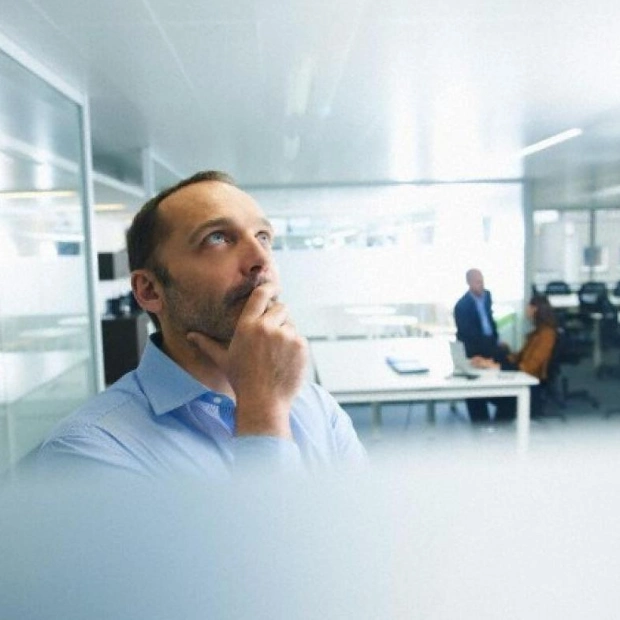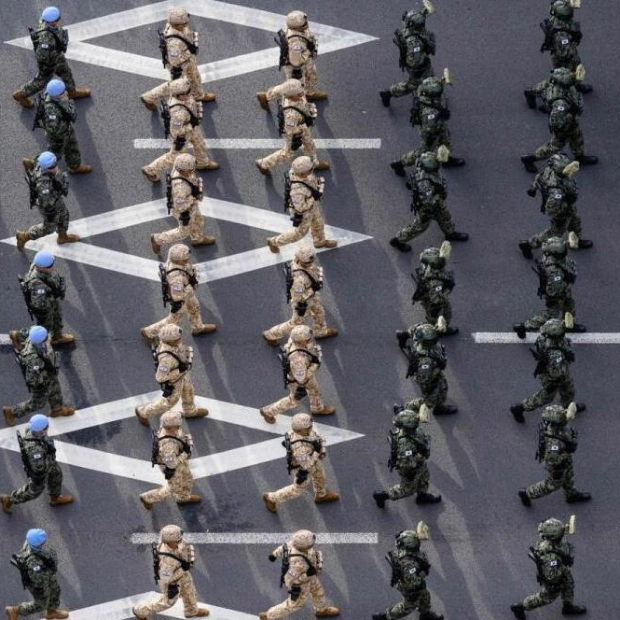“I believe the 50m sprint presents a fantastic opportunity for me,” Adam Peaty remarks, his steely gaze reflecting determination as he discloses his intention to continue swimming until 2028. Having secured two gold and one silver medal in the 100m breaststroke across three consecutive Olympic Games, Peaty shows no signs of slowing down. Following a proposal from World Aquatics, the governing body of the sport, to encourage the IOC to incorporate more sprint events at the Los Angeles Olympics, the most accomplished breaststroke swimmer of all time might postpone his retirement.
“If the 50m event is included, I will fully commit to reaching that goal,” Peaty asserts. “If not, it’s a significant question mark. It’s a 50-50 decision.” Turning 30 in December, Peaty pauses thoughtfully. “You’ve chronicled my journey for nearly a decade, and I recall our first interview in 2015 in Salford. I’ve evolved significantly since then and now bear greater responsibilities. It’s no longer about my desire; it’s about my family’s wishes, including Holly, George, and any future children. It’s no longer a selfish choice; we must consider the immense difficulty involved.”
However, the allure of the 50m sprint remains compelling for Peaty. “I possess powerful sprint capabilities. I can perform that all day,” he says, recalling the passion that propelled him to such heights in the 100m discipline. Peaty remained undefeated in this event for eight years until his unexpected loss at the 2022 Commonwealth Games, which led to a mental breakdown, making him question if he would ever swim again. Yet, with his characteristic resilience and newfound calm, Peaty found his way back.
This summer, at the Paris Olympics, he claimed silver in the 100m breaststroke. Diagnosed with Covid the following morning, he missed his third consecutive gold by a mere two-hundredths of a second. Peaty wept during the post-race interview but his evolved mindset was evident. “I’m not crying because I came second,” he explained. “I’m crying because of the immense effort it took to get here. In my heart, I’ve won. These are tears of joy.”
It seemed Peaty might have swum his final race in the 4x100m medley. The British relay team narrowly missed a medal, won by China. The result left a bitter taste for Peaty, as two members of the winning quartet had previously tested positive for banned performance-enhancing substances, though neither was sanctioned due to accepted food contamination results.
Peaty mentioned he “might need to step away from the sport” because “it hurts too much.” Back home, on a serene October morning, a renewed vigor fills him when asked if he might compete in both the 50m and 100m breaststroke in 2028. “I could, yes,” he says with a spirited grin. “I’m an easygoing person, but that decision hinges entirely on the 50m. If 50m sprints for breaststroke, fly, and backstroke, for both genders, are included, I think they might reduce some distance events.”
Peaty has already contemplated his preparation for a competitive return. Engaged to Holly, daughter of Gordon Ramsay, and father to a four-year-old son, his life now doesn’t align with the grueling commitment that once saw him swim 10,000m to 12,000m daily. Would he train differently for the 50m? “The 100m demands more training and aerobic fitness, which is more punishing. But it’s not impossible to do both. If I know there’s a 50m in 2028, that’s my target. I’ll also train for the 100m and see how it goes. For the 100m, I’d need to swim at least 9,000m daily. But if I focused solely on the 50m, I could reduce my training to 5,000m or even 4,000m daily.”
Reflecting on his tumultuous summer, Peaty once stated, “Second place, for me, is losing.” Does he still feel positive and philosophical about winning silver in Paris? “Absolutely. As time passes, more wisdom comes. I did everything possible with the cards I was dealt. Of course, there are moments of ‘What if?’ You feel a bit disappointed because it’s just 0.02 seconds [between silver and gold].” Peaty laughs. “It’s absurd. But I couldn’t have delivered a better result given my condition. You can’t do much when your body is fighting illness. I really suffered because of that. But when I got my medal, it was for Holly and George, and I thought: ‘Nothing could replace this feeling.’ Forget medals and world records. That doesn’t define me. Being a father defines me. Being a husband, hopefully next year, defines me. Being a good person and having good relationships defines me.”
Peaty is eager to mentor young swimmers and individuals from disadvantaged backgrounds. It’s typical of Peaty’s deepened empathy that he expresses joy for Nicolò Martinenghi, the new Olympic champion he had beaten numerous times. “I’ve raced Nicolò for a long time, and he’s a great guy, great for the sport. Out of all the competitors, I wanted him to win. It was great to share that joy with him.” The race was won in a slow time—59.03 compared to Peaty’s world record 56.88. Peaty also swam quicker in the semi-final and at the British trials. “I’ve been faster many times, even when not fully rested. I don’t want to say it was a slow pool, as there was fast swimming. But that was a slow time for me due to my circumstances. Normally, I could easily do 50m underwater to warm up my lungs. With Covid, which I didn’t know at the time, I got to 15m on the morning of the final and thought: ‘I can’t breathe.’ I was down to about 30% of my usual capability. So, considering that, I’m blessed to have achieved what I did. I believe God has placed me here for a reason. A silver medal might change my thinking and the rest of my life for the better.”
Did his heart sink when he woke up feeling unwell on the morning of the final? “No. I’ve been trained by Mel Marshall and worked with incredible people like sports psychiatrist Steve Peters. So it was like: ‘Oh, OK. I’ve got a headache, a bit of a fever, and a sore throat.’ But in my mind, I soon thought: ‘I don’t care, let’s just go.’ Me and Mel would always say: ‘Get over the trench and just charge.’ It doesn’t matter if you’ve got a broken ankle or a sore throat. I could have easily pulled out because I was ill. But how would that define me for the rest of my life? I decided: ‘No, we’re going to give our absolute best here.’”
When Peaty returns to the pool, he’ll initially train without Marshall’s guidance. An outstanding coach who has been with him since his teenage years, Marshall has moved to Australia for a new job after feeling disempowered in the UK. Did she discuss this disempowerment with Peaty? “Yes, she did. From my perspective, she’s an incredible coach who has been undervalued and under-supported, sometimes even prevented from making decisions that would have made her an even better coach. But in any high-performance job, there are people who try to bring you down. People reading this will know who they are. But that’s just sport in this country. It won’t change until someone says: ‘This is not good enough.’ Mel has chosen to go to Australia because she’s finding value there. Why would you work somewhere where you don’t feel valued? It’s ridiculous.”
Peaty also questions the doping undercurrent in elite swimming. Asked about 11 swimmers being allowed to compete in Paris after previous PED positives, he says: “It’s absolutely ridiculous. We all want fair and honorable competition. I don’t think Wada [the World Anti-Doping Authority] has been strict enough. That has to change. The ITA, the international testing agency, has a formula where only one governing body controls the testing procedure with no bias. That’s the challenge for sport now. How can we shift to this system? I have no issues with making all my testing results public for anyone to view from any country. Why isn’t that implemented? We need 100% transparency because testing should not be hidden. For me, the lack of transparency was very suspicious and only came out three years later after a leak reported by journalists.”
In April, a New York Times investigation reported that 23 Chinese swimmers at the Tokyo Olympics had tested positive for trimetazidine, a banned substance, at a training camp just months before those Games began. The swimmers were cleared to compete because Wada determined it was “not in a position to disprove the possibility that contamination was the source” after a Chinese anti-doping investigation attributed the contamination to a hotel kitchen. An outcry following the NYT article prompted Wada to commission an independent prosecutor, which supported their handling of the case. Peaty stresses that “we need a system that gives fans 100% trust [in the testing procedure and the swimmers].”
Peaty is an ambassador for Castore, the sportswear brand he has worked with for many years, and he has been too busy to feel the post-Olympic blues. But does he miss the strict routine of training while discussing so many broader issues? “Yes and no. Sometimes I think: ‘Wow, I wish I was just swimming now as it’s my safe zone.’ But I wouldn’t be learning and growing if I didn’t put myself into these uncomfortable situations that are very important for me to be the person I want to be for the rest of my life.” But, as Peaty is so driven to race, he could soon be ready to start the next Olympic cycle. “Yeah,” he says with a determined smile. “It’s like people climb Everest every season, and not everyone, including some of the best climbers in the world, will make it. The climbing mentality is that losing is still an experience. Sometimes it’s even more important than making the summit because it really pushes you to find out who you are. It’s the same with sport—and with me.”






